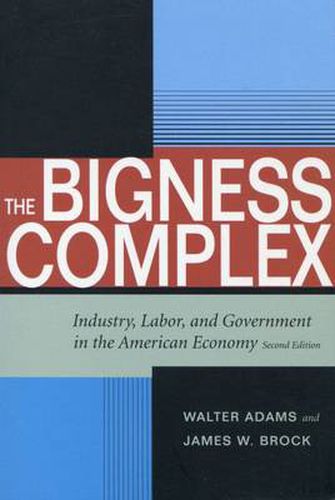Readings Newsletter
Become a Readings Member to make your shopping experience even easier.
Sign in or sign up for free!
You’re not far away from qualifying for FREE standard shipping within Australia
You’ve qualified for FREE standard shipping within Australia
The cart is loading…






The Bigness Complex confronts head-on the myth that organizational giantism leads to economic efficiency and well-being in the modern age. On the contrary, it demonstrates how bigness undermines our economic productivity and progress, endangers our democratic freedoms, and exacerbates our economic problems and challenges. This new edition has a thoroughly updated variety of issues, examples, and new developments, including government bailouts of the airline industry; regulation of biotechnology; the fiasco of recent electricity deregulation; and mergers and consolidations in oil, radio, and grocery retailing. The analysis is framed in the timeless context of American distrust of concentrations of power. The authors show how both the left and the right fail to address the central problem of power in formulating their diagnoses and recommendations. The book concludes with an alternative public philosophy as a viable guidepost for public policy toward business in a free-enterprise democracy.
$9.00 standard shipping within Australia
FREE standard shipping within Australia for orders over $100.00
Express & International shipping calculated at checkout
The Bigness Complex confronts head-on the myth that organizational giantism leads to economic efficiency and well-being in the modern age. On the contrary, it demonstrates how bigness undermines our economic productivity and progress, endangers our democratic freedoms, and exacerbates our economic problems and challenges. This new edition has a thoroughly updated variety of issues, examples, and new developments, including government bailouts of the airline industry; regulation of biotechnology; the fiasco of recent electricity deregulation; and mergers and consolidations in oil, radio, and grocery retailing. The analysis is framed in the timeless context of American distrust of concentrations of power. The authors show how both the left and the right fail to address the central problem of power in formulating their diagnoses and recommendations. The book concludes with an alternative public philosophy as a viable guidepost for public policy toward business in a free-enterprise democracy.